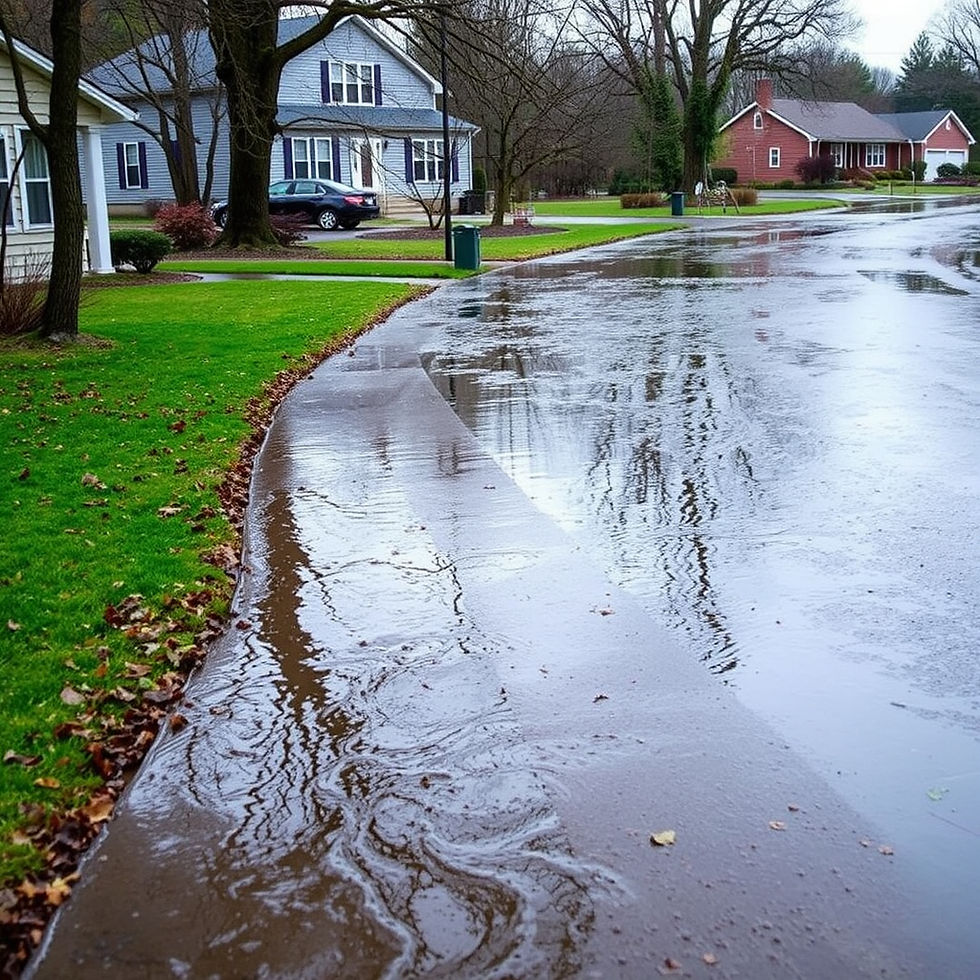How to Become a Plumber: A Complete 2025 Guide
- Jayant Upadhyay
- Jul 15
- 4 min read

Plumbing is more than just fixing leaks and unclogging drains. It's a skilled trade that offers job security, excellent earning potential, and opportunities for entrepreneurship. With the construction industry booming and infrastructure aging, the demand for qualified plumbers in the United States is at an all-time high.
If you’ve ever thought about pursuing a hands-on, high-demand career without a four-year college degree, becoming a plumber might be the perfect path for you. In this comprehensive guide, we’ll walk you through everything you need to know about how to become a plumber—from education and training to licensing and career advancement.
Table of Contents
Why Choose a Plumbing Career?
Why Choose a Plumbing Career?
Becoming a plumber offers several benefits, including:
Strong job demand: Plumbing is essential in residential, commercial, and industrial settings.
No student debt: Most plumbers train through paid apprenticeships.
Excellent pay: Plumbers often earn over $60,000/year, with top earners making six figures.
Career growth: You can become a master plumber, contractor, or even start your own business.
Job satisfaction: Many plumbers enjoy problem-solving and seeing tangible results.
What Does a Plumber Do?
A plumber installs, maintains, and repairs piping systems that carry water, gas, and waste in homes and businesses. Their responsibilities may include:
Installing sinks, toilets, bathtubs, and water heaters
Reading blueprints and technical diagrams
Diagnosing pipe leaks and water pressure issues
Replacing worn parts and piping
Complying with local plumbing codes
Working on both indoor and outdoor plumbing systems
Plumbers may also specialize in commercial systems, green technologies, or HVAC systems.
Step-by-Step Guide to Becoming a Plumber
Here’s a breakdown of the steps you need to follow to enter this trade:
Earn a high school diploma or GED
Complete pre-apprenticeship or vocational training
Apply for a plumbing apprenticeship
Gain on-the-job experience (typically 4–5 years)
Pass state or local licensing exams
Work as a licensed journeyman plumber
Optional: Become a master plumber or contractor
Let’s go deeper into each step.
Plumbing Education and Training Options
1. High School Preparation
Start with strong math and science skills. Classes in algebra, geometry, physics, and shop can help lay the foundation.
2. Vocational Schools or Community Colleges
Many aspiring plumbers attend plumbing certificate programs that last 6–12 months. These programs teach:
Pipefitting basics
Blueprint reading
Safety protocols (OSHA)
Plumbing codes
Welding and soldering
This gives you a competitive edge when applying for apprenticeships.
Licensing Requirements by State
Plumbing is a licensed trade in most U.S. states. While each state has its own rules, most require:
A specific number of training hours
Passing one or more exams
Proof of apprenticeship completion
Some states like California, Texas, and New York have their own unique licensing boards, while others follow national standards.
👉 Visit your state’s licensing board website for exact details.
Apprenticeship: The Gateway to the Trade
Apprenticeships combine paid work experience with classroom instruction and typically last 4–5 years.
You can find apprenticeships through:
Local unions (e.g., UA - United Association)
Trade schools or colleges
Independent plumbing companies
Online apprenticeship directories
During your apprenticeship, expect to:
Earn 40–50% of a journeyman’s wage to start
Work under licensed professionals
Learn safety, local code, system design, and tool use
Plumber Career Paths: Journeyman, Master, and Beyond
Once you complete your apprenticeship and pass your exam, you become a licensed journeyman plumber.
Journeyman Plumber
Can work independently
Must renew license periodically
Cannot pull permits or run a business in most states
Master Plumber
Requires additional years of work
Must pass a master-level exam
Can supervise, pull permits, and own a plumbing company
Other Career Options
Plumbing Inspector
Project Manager
Business Owner
Educator or Trade School Instructor
How Long Does It Take to Become a Plumber?
The entire process typically takes:
4 to 5 years: With an apprenticeship
6 to 7 years: If you include vocational schooling + licensing
1–2 years more: To become a master plumber
However, you’ll be earning while you learn—no need to go into debt for a degree.
Tools and Skills Every Plumber Needs
A good plumber relies on both physical tools and mental skills. Key tools include:
Pipe wrenches and cutters
Torches and soldering equipment
Inspection cameras
Drain augers
Leak detectors
Important Skills
Problem-solving
Communication
Physical strength and stamina
Manual dexterity
Attention to detail
Customer service
You’ll also need to stay updated on changing codes, green technologies, and smart plumbing systems.
Plumber Salary and Job Outlook
According to the U.S. Bureau of Labor Statistics:
Median Salary (2024): $63,000/year
Top 10% earn over $100,000
Job Growth (2022–2032): 2% (steady demand due to infrastructure and housing)
Union plumbers and those who specialize in new technologies (e.g., solar or radiant systems) often earn even more.
Is Plumbing the Right Career for You?
You may enjoy plumbing if:
✅ You like working with your hands✅ You want a job without a college degree✅ You prefer stable, local work✅ You’re detail-oriented and safety-conscious✅ You don’t mind getting dirty
However, plumbing can be physically demanding and requires long hours, especially in emergencies. Be prepared for both indoor and outdoor work in all weather.
Final Thoughts
Becoming a plumber is one of the most accessible and rewarding career paths in today’s economy. With affordable training, paid apprenticeships, and room for growth, plumbing offers long-term career satisfaction and financial stability.
Whether you're fresh out of high school, changing careers, or just exploring your options, the plumbing trade is worth serious consideration.
Ready to take the plunge?Start by researching trade schools or apprenticeship opportunities in your area. Your future in plumbing could be just a few steps—and a wrench—away.



Comments